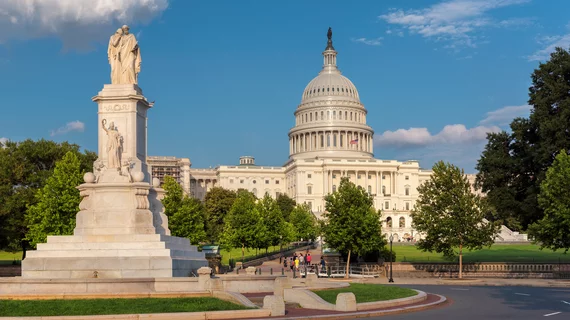Medicare must update lung cancer screening coverage to ensure access, ACR and others charge
The U.S. Preventative Services Task Force earlier this month updated its lung cancer screening guidelines to qualify millions more for exams. And now, physician and patient groups are calling on the federal Centers for Medicare & Medicaid Services to update its coverage policy to reflect the change.
In a March 9 letter addressed to CMS leadership, the American College of Radiology, the Society of Thoracic Surgeons, and the GO2 Foundation for Lung Cancer—a non-profit, patient-founded group—said life-saving low-dose CT is only effective if patients can access exams. The trio called on the federal agency to open a National Coverage Determination reconsideration on the topic.
“The USPSTF has expanded the screening population—particularly among the most vulnerable and underserved,” Laurie Fenton Ambrose, president and CEO of the GO2 Foundation, said in a statement. “Now we urge Medicare to move quickly to cover these Americans and make changes to improve access and make the screening process less complex.”
To achieve this, the groups urge CMS to lower the screening eligibility age from 55 to 50 and smoking history to 20 pack-years, in alignment with USPSTF recommendations.
The letter writers also lobbied for annual eligibility to more closely resemble National Comprehensive Cancer Network guidelines. This means eliminating the 77-year-old upper age limit and mandating that patients be current smokers or have quit in the past 15 years.
Furthermore, Medicare Administrative Contractors should be directed to reimburse for LDCT completed in all facilities, including independent imaging centers, the advocates wrote.
“Swift coverage expansion by Medicare and private insurers would help doctors and allied professionals address racial and regional disparities and strike back against the nation’s leading cancer killer by using lung cancer screening to its full advantage,” Debra Dyer, MD, chair of the ACR Lung Cancer Screening Steering Committee added.
Read the entire letter here and for more on USPSTF’s lung cancer screening update click here.

